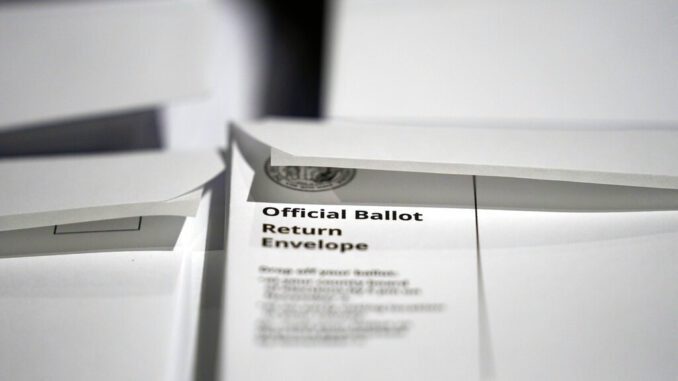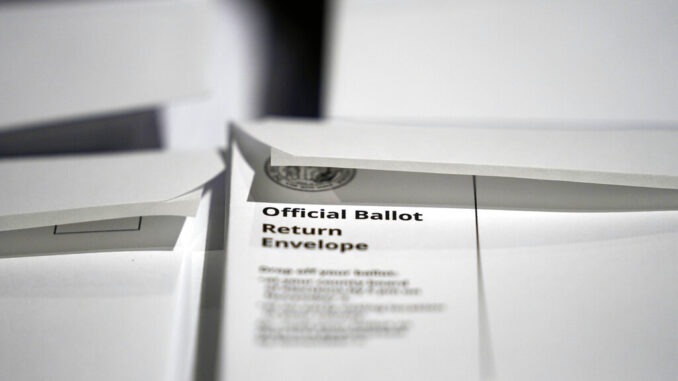

GREENSBORO — A federal judge leveled sharp criticism on Wednesday against a procedure loosening absentee ballot laws, but declined to immediately rule in a tangle of election-related lawsuits.
U.S. District Judge William Osteen, who’s presiding over three related cases, said he aims to issue a written ruling early next week after hearing more oral arguments on Thursday. Voting rights advocates argue that thousands of ballots with deficiencies are essentially in limbo until a clear process is developed for handling them.
A key issue is how local elections boards should implement a state law requiring absentee voters to have another adult serve as a witness to their ballot and sign the envelope containing it. The state board had recently sought to enact an agreement loosening laws passed by the General Assemlby and signed by Gov. Roy Cooper, but without filling out a new ballot. Those updated rules are currently on hold pending the lawsuits Osteen is hearing.
Osteen expressed concerns that the procedure would essentially eliminate the witness requirement and could open the door to ballot fraud. He had previously ruled in August that the state had to ensure voters were afforded due process fix certain deficiencies, but he upheld the overall witness requirement.
In court, Osteen accused the State Board of Elections of using his ruling, cited by the state when the new rules were issued, as a “stepping stone” to eliminate the need for a witness. He suggested that someone could skip having a witness entirely but then have their vote counted anyway by sending an affidavit to county officials.
“You’ve extended my due process ruling into realms I never intended,” Osteen told a lawyer representing the state board.
Alex Peters, a lawyer with the attorney general’s office representing the state board, argued the state didn’t eliminate the witness requirement, reasoning that county boards must still reach out to voters with witness information problems rather than simply counting the vote.
Allison Riggs, a lawyer representing the voting rights advocacy group Democracy North Carolina, urged Osteen to continue allowing people to fix small defects like incomplete witness address information or a witness signature in the wrong place without requiring them to fill out an entirely new ballot.
But among her biggest concerns was that the state has directed county boards to take no action at all on witness problems and other deficiencies pending further guidance from the court, meaning voters who may have problems are losing time to fix them.
Meanwhile, Peter Patterson, a lawyer representing state Republican legislative leaders fighting the agreement made the state board and Washington, D.C.-based Democratic lawyer Marc Elias, argued the state board should return its late August guidance requiring an entirely new ballot to fix incomplete witness info.
The absentee ballot rules being argued in court were issued on Sept. 22 as part of a legal settlement in a separate state lawsuit. At the time, the state board also extended by over a week the period after Election Day when county boards could accept ballots as long as they were postmarked by Nov. 3. A state superior court judge approved the changes as part of a legal settlement.
But Republican legislative leaders argued the changes would dilute the weight of votes cast by people who followed the original, stricter rules. State and national GOP leaders including President Donald Trump’s reelection campaign filed lawsuits challenging the changes in a Raleigh federal court. The judge hearing those cases, U.S. District Judge James Dever, temporarily halted the changes and then transferred the two cases brought by GOP leaders to Osteen.
So far, nearly 395,000 absentee ballots have been accepted, the state said Wednesday. But another 11,000 have been set aside because of various deficiencies or the need for further review. In light of the ruling by Dever, the state board told county officials on Sunday to take no action on deficient ballots pending further court decisions.



